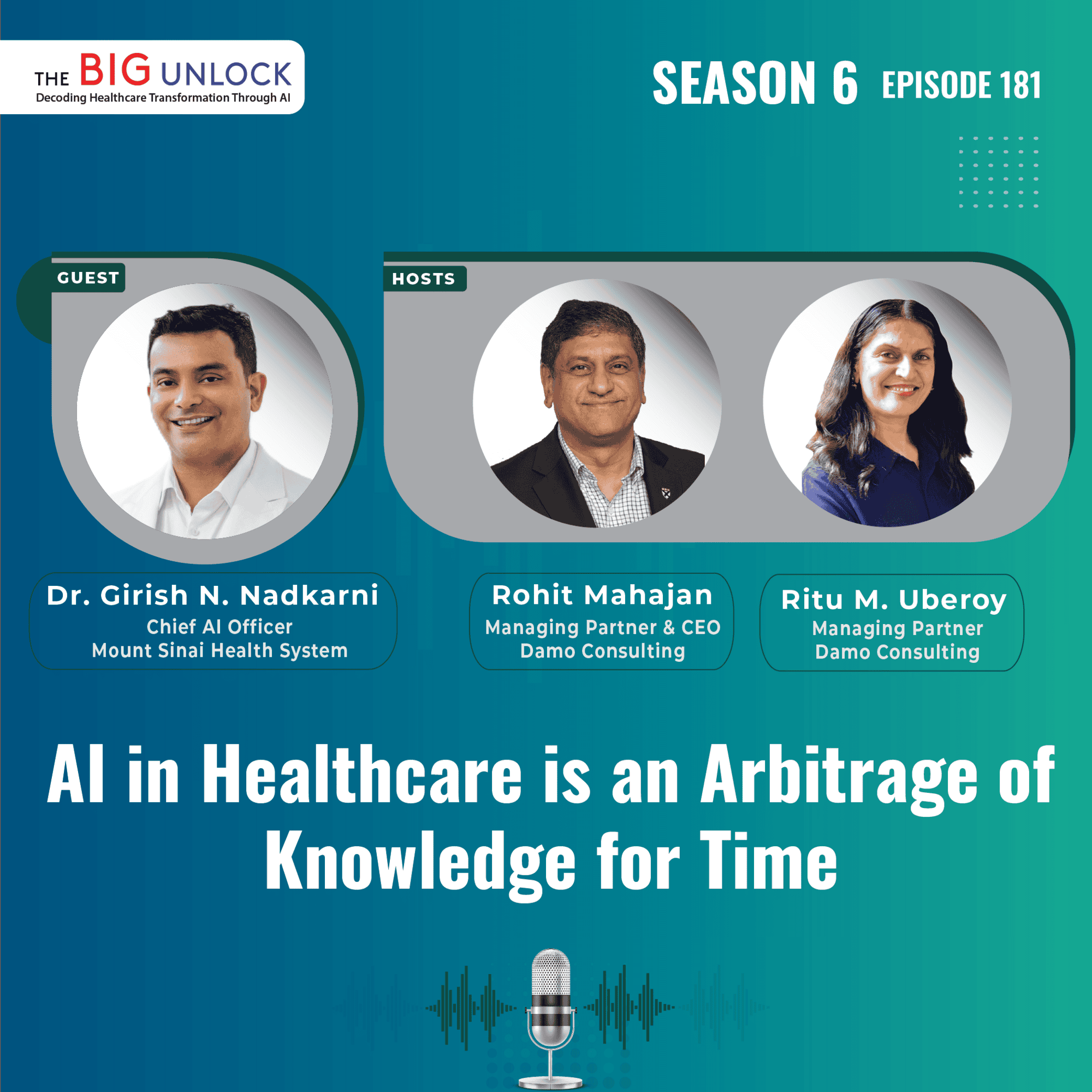Listen "AI in Healthcare is an Arbitrage of Knowledge for Time"
Episode Synopsis
The Big Unlock · Dr. Girish N. Nadkarni, Chief AI Officer, Mount Sinai Health System
In this episode, Dr. Girish N. Nadkarni, Chief AI Officer at Mount Sinai Health System, discusses his background as a physician-technologist and his vision for AI in healthcare as a tool that augments rather than replaces clinicians.
Dr. Nadkarni shares insights on how AI is reshaping healthcare. He describes AI as an ‘arbitrage of knowledge for time,’ enabling physicians to spend less time on administrative work and more time with patients. He also shares real-world examples including ambient AI scribes that eliminate manual note-taking and predictive models that detect patient deterioration hours before it occurs, especially in critical care units such as the NICU. Dr. Nadkarni distinguishes predictive AI’s deterministic approach from generative AI’s flexible, non-linear potential, emphasizing the need for governance, ethics, and trust in deploying both. He outlines Mount Sinai’s cross-functional framework—spanning care, operations, workforce, and research—supported by an assurance lab to monitor bias and safety.
Dr. Girish highlights current AI applications that save physicians time and enable proactive care, while predicting future developments will include multimodal integration of text, voice, images, and video to better reflect clinical decision-making processes. Take a listen.
In this episode, Dr. Girish N. Nadkarni, Chief AI Officer at Mount Sinai Health System, discusses his background as a physician-technologist and his vision for AI in healthcare as a tool that augments rather than replaces clinicians.
Dr. Nadkarni shares insights on how AI is reshaping healthcare. He describes AI as an ‘arbitrage of knowledge for time,’ enabling physicians to spend less time on administrative work and more time with patients. He also shares real-world examples including ambient AI scribes that eliminate manual note-taking and predictive models that detect patient deterioration hours before it occurs, especially in critical care units such as the NICU. Dr. Nadkarni distinguishes predictive AI’s deterministic approach from generative AI’s flexible, non-linear potential, emphasizing the need for governance, ethics, and trust in deploying both. He outlines Mount Sinai’s cross-functional framework—spanning care, operations, workforce, and research—supported by an assurance lab to monitor bias and safety.
Dr. Girish highlights current AI applications that save physicians time and enable proactive care, while predicting future developments will include multimodal integration of text, voice, images, and video to better reflect clinical decision-making processes. Take a listen.
More episodes of the podcast The Big Unlock
AI Innovation Across Healthcare and Pharma
23/09/2025
AI If Done Right Can Rehumanize Healthcare
04/08/2025
 ZARZA We are Zarza, the prestigious firm behind major projects in information technology.
ZARZA We are Zarza, the prestigious firm behind major projects in information technology.
